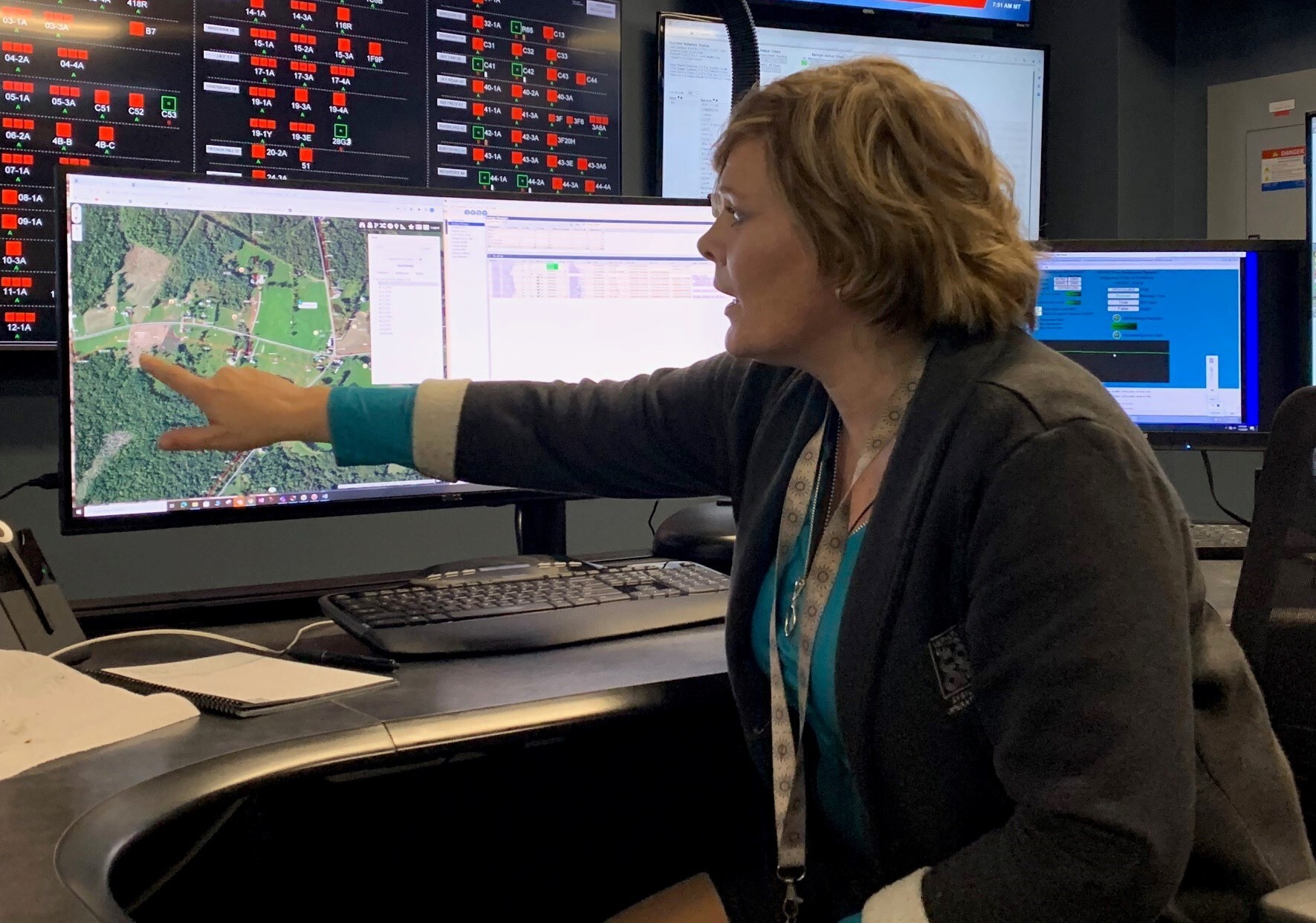VEC Control Center: On for Members 24/7/365

VEC’s Control Center is the hub of all of the co-op’s system operations. The center, which can be operated from VEC headquarters in Johnson or its Newport facility, runs all day every day to assure smooth delivery of electricity all the way from power sources through transmission and distribution networks to members’ homes and businesses.
Scott Rockwood, Chief System Operator, took a few questions recently about the Control Center and the System Operators (including Melanie Messier, in photo) who run it.
What exactly do System Operators do?
Our System Operators do a range of things, some of which you might say fall into the “monitoring” category and others you might call “response.”
Can you explain what you mean?
Their monitoring role includes watching carefully to be sure the voltage and usage across the system is smooth and usable for our members. They monitor the power flows on all of VEC’s transmission and distribution facilities, including interconnection points with neighboring utilities such as Hydro-Quebec – all to assure that the power VEC delivers is safe and of high quality when it arrives at members’ homes or businesses. Operators also monitor the co-op’s 41 substations and primary metering points to be sure they are working as intended. They also keep an eye on the technology and systems that are designed to protect the co-op’s physical infrastructure and our cyber security systems. Finally, the Control Center helps monitor incoming weather threats, so the co-op can prepare well ahead of time for storms.
What about their “response” role?
Unplanned outages are our main concern. These power outages can be caused by storms – whether wind, heavy snow, soaked ground, sometimes a combination of all three. Other times outages are caused when motorists collide with utility poles – we call them “car-pole accidents.” There can also be interference with our system from animals like squirrels or birds that cause outages.
Whatever the cause is, when the power goes out, operators can dispatch crews to outage areas and coordinate restoration efforts and remain in contact with crews as they work to assure safety. Many times during outages, operators have to re-route the flow of power across the VEC grid in order to keep electricity flowing for members. We are lucky that VEC has a direct tie to the Canadian power system (Hydro-Quebec) so that if we have an outage in a certain area, we can draw directly from their grid until we fix our own system. We are the only Vermont utility with this direct tie.
What else do System Operators manage?
For planned outages – when we have to make repairs or do upgrades to the system, they transfer loads so that crews can work safely and we minimize outages for members. They work with the New England grid operators to assure there is enough power for the region during emergencies, log and track the presence of crews working on the system, whether they are VEC employees, contractors, or crews from other utilities, and more.
System Operators frequently get off-hour calls regarding structure fires that have cut the power from a home or business. They get calls from members who are reporting outages, or other potentially dangerous situations like trees on a line, or a downed power line, which requires them to de-energize circuits, if needed. Generally speaking we have two operators working during the day, and one during the night.
What types of skills are needed for this sort of role?
A must is attention to detail. Good, clear communications skills are critical. People who have dispatching experience and/or a strong understanding of electricity can be good System Operators. You need to be able to prioritize, think on your feet, and respond quickly during emergencies. You have to be able to manage high-stress situations and be able to handle what comes at you. System Operators need to be precise. Everything is done according to a set procedure. Finally, being able to work and collaborate as a team is an important skill in this work.